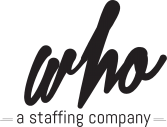Hiring Remote Employees? Here are 3 Things to Consider
More than five million people currently work remotely. Now, as companies consider business plans for a post-COVID-19 work environment, many are considering leaning further into a hybrid or remote workforce permanently. In fact, one study revealed 40 percent of employees surveyed would prefer to work remotely full-time.
Fully embracing a culture that supports remote work can help with productivity, retention, culture, and success. Hiring remote employees can also benefit employers, allowing interested candidates to apply for positions without the need to relocate. However, some companies are still hesitant about working remotely.
If your company is unsure about adopting a remote workforce, we’ve gathered three considerations to help you make your decision.
Lower overhead costs by increasing remote employees.
It may be obvious, but hiring remote workers can lower overhead costs. Companies that support remote work don’t have to absorb expenses related to office space, such as rent, office supplies, et cetera.
According to Global Workplace Analytics, nearly six out of ten employers identify cost savings as a significant benefit to remote work, seeing an average of $10,000 per employee in real estate savings annually.
Reevaluate your compensation structure.
The pandemic may have set off a worldwide transition to working remotely, but it’s worth noting it’s certainly here to stay when things go back to normal. Hiring remote workers also allows companies to expand their reach in attracting top talent. However, compensation for a remote workforce is not a one-size-fits-all decision.
To set compensation for remote workers, Payscale suggests companies evaluate three options:
Set remote worker salaries that align with salaries at your headquarters or reporting office. If you’re in a hub for talent critical to your business, setting salaries according to your location or the office into which the worker reports may be the right strategy.
Set remote worker salaries that align with where employees live. Consider a business in an area with a lower cost of living looking to hire talent found in more expensive areas – for example, it’s nearly 80 percent more expensive to live in New York vs. Florida. Paying the remote worker according to where they’ll be working from may be the only option available in a competitive area.
Set remote worker salaries in line with a national average that corresponds to the position and the candidate’s experience level. Consider adjustments for the cost of living in areas that are out of your pay range otherwise.
Leverage your values and create a welcoming environment.
Candidates will actively research to learn more about your beliefs and core values when considering if they should work for your company. In fact, one study shows 75 percent of candidates will research a company’s reputation before applying to a job opening. Actively partner with recruiters and staffing agencies to incorporate your core values into sourcing the right candidates and your interview process.
Additionally, create an environment supportive of remote workers. The flexibility of working remotely offers continues to grow in popularity but can have a significant impact on mental health and work-life balance. Check in frequently with your remote workers and create opportunities to connect in person whenever possible.
Develop a Strategy to Hire Remotely
You’ve decided you’re ready to hire remotely – what comes next?
Before you begin hiring remote workers, develop a strategy to attract talented professionals to your positions and retain them once they’ve accepted. Have a clear picture of the ideal candidate for the position and tailor your search to focus on what sets you apart (e.g. compensation, flexibility and work-life balance, et cetera). During the interview process, ask specific questions that reveal how a candidate aligns with your core values. Lastly, foster an inclusive environment for your remote employees to keep them connected with your goals and initiatives.
Additionally, work with recruiters who believe people matter most. Our recruiters help employers find the perfect candidates, including those who work remotely. After all, the most impactful decision companies make is who they hire. A strategic approach to sourcing can help you hire great remote candidates in the long run.
If Who Staffing can help you in any way with building a process that allows you to win the war on talent, please feel free to reach out to start a conversation or go here for more information about us.



